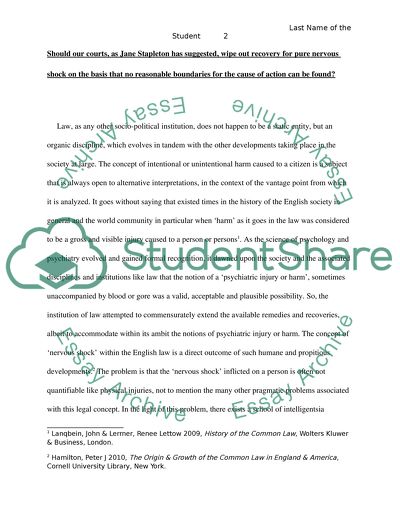Cite this document
(“Should our courts, as Jane Stapleton has suggested, wipe out recovery Essay”, n.d.)
Retrieved from https://studentshare.org/environmental-studies/1406504-should-our-courts-as-jane-stapleton-has-suggested
Retrieved from https://studentshare.org/environmental-studies/1406504-should-our-courts-as-jane-stapleton-has-suggested
(Should Our Courts, As Jane Stapleton Has Suggested, Wipe Out Recovery Essay)
https://studentshare.org/environmental-studies/1406504-should-our-courts-as-jane-stapleton-has-suggested.
https://studentshare.org/environmental-studies/1406504-should-our-courts-as-jane-stapleton-has-suggested.
“Should Our Courts, As Jane Stapleton Has Suggested, Wipe Out Recovery Essay”, n.d. https://studentshare.org/environmental-studies/1406504-should-our-courts-as-jane-stapleton-has-suggested.


